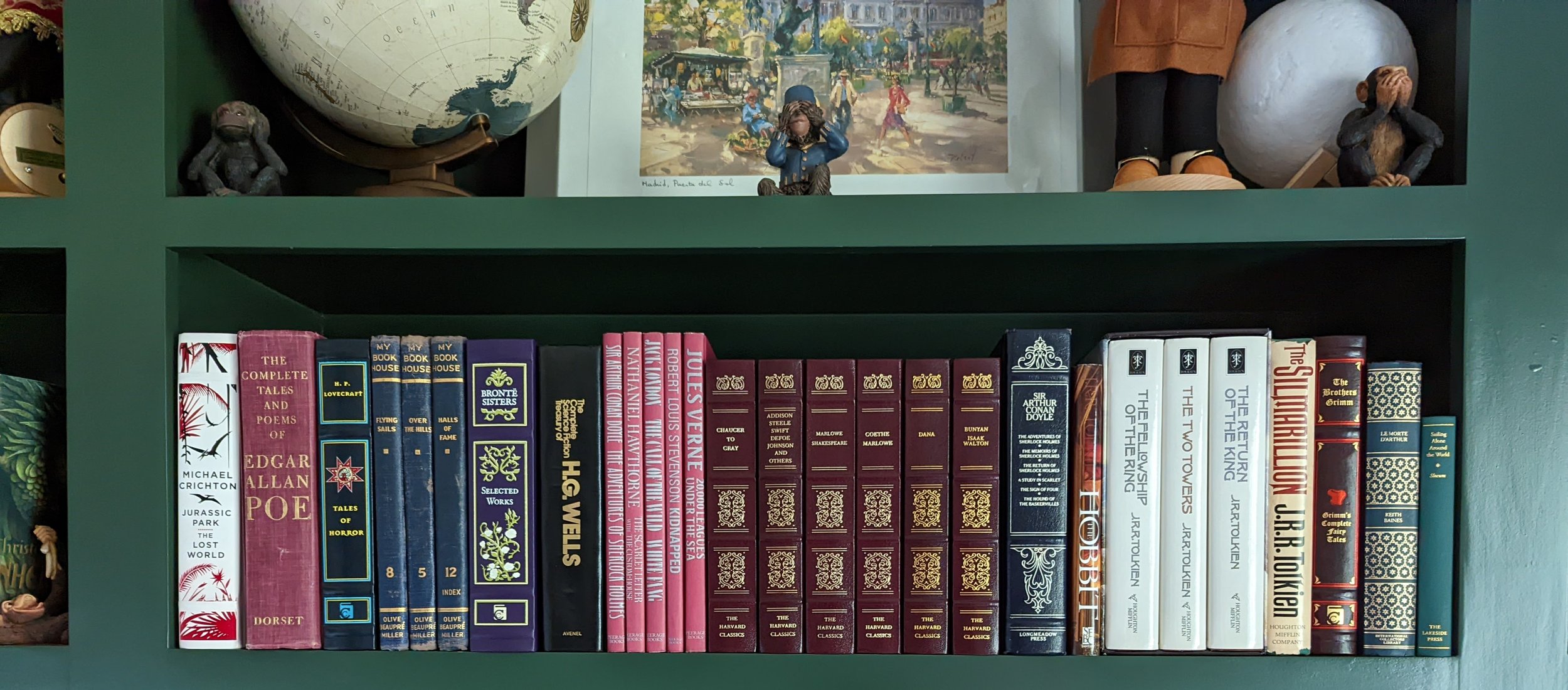
Advice for Writing, Editing, Reading, and Life.
New posts on Mondays (for non-fiction) or Fridays (for fiction)

Us Versus Us: 2023 Year-End Review
It’s that time again. I want to talk about what I’ve read, what I’ve done, and what I’ve learned in the Year of Our Lord two-thousand twenty three. That’s enough of an intro, right?

2023 Novel November Editing Giveaway
Every year, come October, I tell myself I should participate in National Novel Writing Month (NaNoWriMo). And most years, come the day after Halloween, I’ve decided I can’t handle that much extra work in my life right now.
This year, because I knew I wouldn’t be writing, I decided to do something for writers.

Adeptly Avoiding Adverbs (And Allowing Them Adroitly)
Many famous writers, from Mark Twain to Stephen King, have suggested that the only good adverb is one left out of your draft. As with lots of advice offered glibly, this comes from a good place, but it has to be understood in context of why adverbs cause problems. A poorly constructed sentence without adverbs is still poorly constructed.

Anatomy of Storytelling: Do Stories Require Language?
Imagine that meaning is water. To know how much water you have, you need a system of measurement. To move the water from place to place, you need a bucket. Until you put your story into a language, it cannot be carried by someone else.

A Haiku, an Apology, and a Promise
This week has been a busy one for me, which means part three of “Anatomy of Storytelling” isn’t ready yet. But I have started it… mostly… kind of… look the outline is done in my head, OK? It’s a good one, and it requires more research that I haven’t finished yet. I’ll be answering the question: “Do stories require language?”

Anatomy of Storytelling: How Do You Tell a Story?
Anyone can tell a story. All of us do it daily. But not everyone can tell a story that will stick with the audience for years to come. If storytelling is the primary purpose of language (which, I’d argue it is), and language is the primary characteristic that separates us from animals (which, I’d argue it is) …
Isn’t it worthwhile to be good at it?

Anatomy of Storytelling: What Is a Story?
What even is a story? Lots of ideas came to mind. Perhaps a story is a series of events relayed by one person (or group) to another person (or group)? Or, perhaps a story is the communication of thoughts and feelings?
Ultimately I settled on this: a story is the base unit of meaning. To help me explain, I need to take a tangent into science.

When Good Is Enough: 2022 Year-End Review
The wistful desire to think through the year and the lessons learned and the growing pains afflicts me as well. The nostalgic sense of wonder and reflection—they are not foreign to me. Thus, since I cannot change the calendar, I will submit to its declaration that today is the last day of the year.

Five More Rookie Writing Mistakes
No writer is perfect. The closest we can get is to keep pushing forward, and allow others to speak into our work to help us find and fix mistakes. My hope is that you, by reading this post, are helped to find and fix these rookie mistakes (that I still sometimes make).

Three Tips to Write Better Dialogue
You may not immediately think so, but dialogue can make or break a work of fiction. When I wrote about common writing mistakes, I didn’t touch on dialogue, but it’s not because dialogue is easy. It’s because it’s hard, and the mistakes writers make when writing dialogue aren’t, in my opinion, rookie mistakes.

Publishing Pathways: Non-Traditional Publishing
At its best, non-traditional publishing fills a niche and provides a useful set of services to aspiring authors. Rather than selling the rights to your work in order to have a professional team polish and distribute your work, with non-traditional publishing, you pay a fee to have a professional team polish and distribute your work in order to keep your rights.

Publishing Pathways: Traditional Publishing
There are a lot of nitty gritty details about what different publishing deals can look like with different traditional publishing firms, but it boils down to this: the firm pays the author to purchase the rights to the work, and the author and publisher negotiate a rate of royalty that the author will be paid for each book sold.

Publishing Pathways: True Self-Publishing
With true self-publishing, if you don’t already know what you’re doing, it falls on you to figure it out. Thankfully, there are a lot of resources online you can lean on to help you cure your own ignorance, but this pathway has good and bad elements that you should be prepared for.

A Case Study on Character: The Jungle Book (1967 vs. 2016)
With the recent release of Disney’s “live-action” Pinocchio remake, it would be too easy to simply point out all the issues with stripping a character of agency and regurgitating a colorful mess onto a streaming platform.
Instead, I want to look at what happens when you take a listless character and breathe life into them. That’s right, we’re finally tackling The Jungle Book, the only remake that I would argue wasn’t just good, but better than the animated classic it drew inspiration from.

Fear Itself
I rarely feel like I can conquer my fears; often the best I can manage is to coexist with them under a tenuous cease-fire. So what do I do?

Through a Glass, Darkly
Reading her thoughts felt like wading into water of unknown depth until my toes were barely scraping the bottom. Part of me knew the essay was deeper than I could comprehend, and that pushing into it risked losing my footing altogether and being swept up in the current.

A Case Study on Theme: Beauty and the Beast (1991 vs. 2017)
Obviously, any great work of fiction can have more than one theme, but there is usually one central theme that any other themes hang on; a trunk from which other themes can branch. The themes of 1991’s Beauty and the Beast deal with prejudice, freedom, love, and forgiveness. And the 2017 remake fumbles basically all of those. But none more egregiously than the “trunk” that made ‘91 so great.

Five Rookie Writing Mistakes (I Still Sometimes Make)
No matter how good you get at bowling, there’s always a cap after which, even if you are getting better, you can’t really measure it. In writing there’s no cap to how good you can be; however, because “good writing” is based almost entirely on subjective criteria, there’s no clear or obvious way to measure how good a writer you are.
All you can do is identify mistakes and avoid them in the future.

Finding Success in the Middle Ground — A response to “The Paradox of Platform”
Nurturing any career is a process. It’s not something that happens at a particular point in time. I got the idea to try writing picture books somewhere around five years ago. On any given day since, I am taking steps toward that end. I joined a critique group—Hooray! I studied the business of writing—Go, me! I learned to revise--Something else to celebrate! Seeing just the end goal disregards the growth points and small wins along the way.

The Importance of Rest
I still struggle with the lie that I can’t take time for real rest if I haven’t finished whatever project I’m working on. Thus, I settle for cheap “rest”, which drains me more and leaves me even less motivated and able to get back on track when I need to.